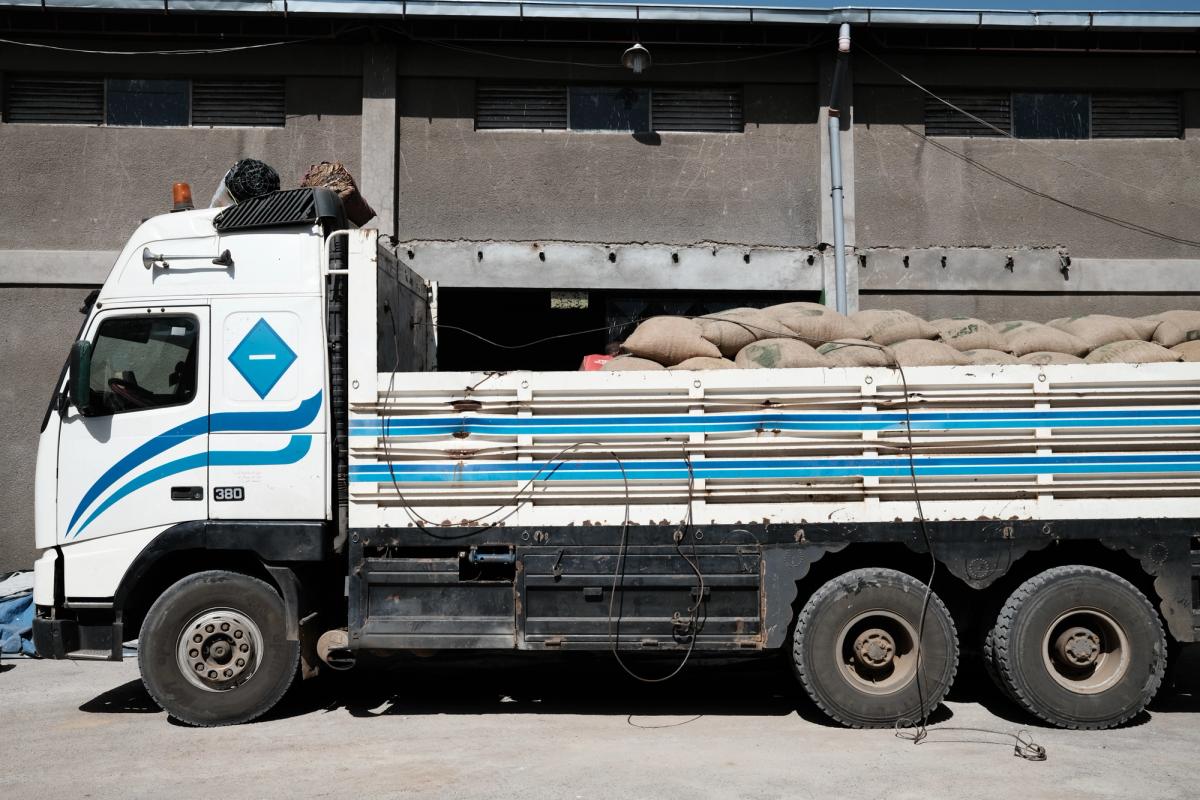Continued Investment and Evolution in Agaro
By Evan Howe
Mar 04, 2024
Agaro is the name of a town in southwestern Ethiopia, approximately one hour’s drive from the city of Jimma. The dusty roads that pass through Agaro town are lined with shops, restaurants, and pool halls. Three-wheeled bajaj taxis are ever present, weaving through herders and their livestock, and groups of children walking to school. Neighbors sit at roadside stalls in the morning sunshine sharing conversation, perhaps a snack of bread with honey, and cup after cup of piping hot coffee.
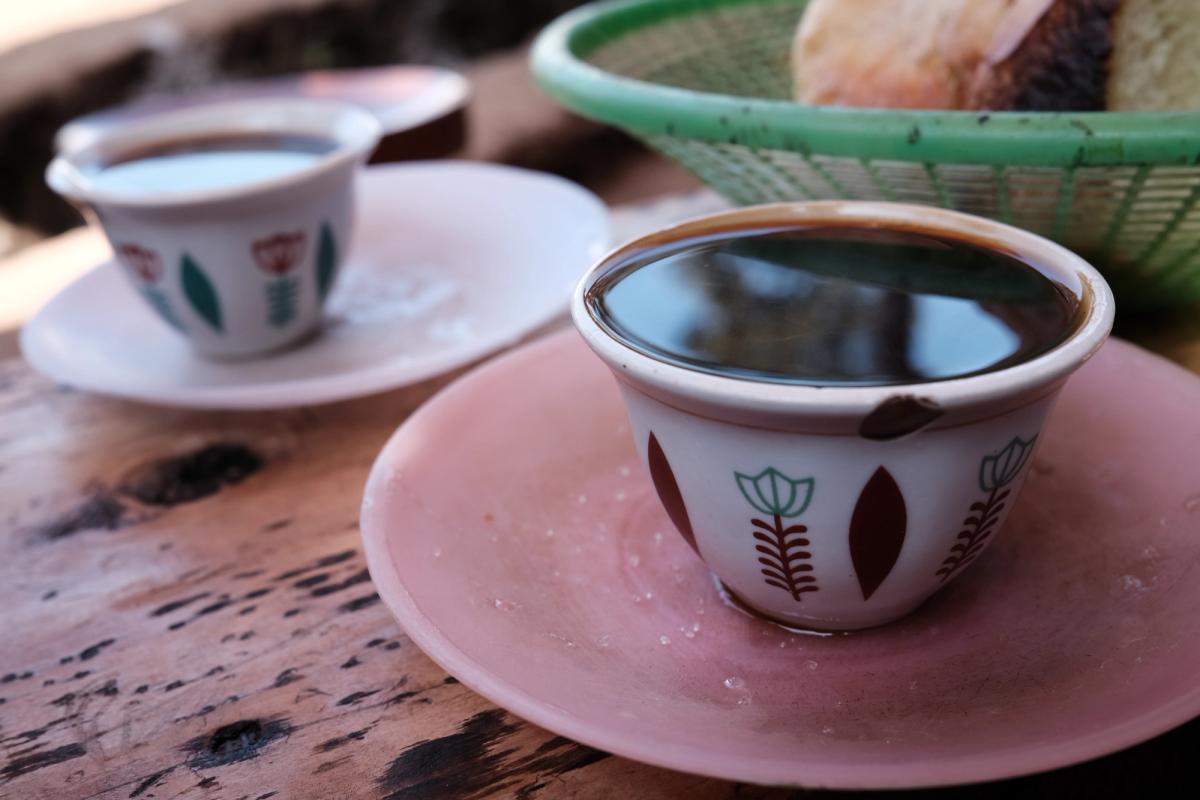
- partner
- Agaro
- From trusted producers working collaboratively with smallholder farmers, our core partnership from the birthplace of coffee is the perennial source of some of our menu’s best-loved offerings.
- View partner
Agaro coffees have been well-loved standbys of Passenger’s menu for nearly a decade. For much of that time, our primary export partner in the region has been the Kata Muduga Union. A famous name in Ethiopian specialty coffee since its founding in 2016, Kata Muduga is an umbrella organization offering administrative, marketing, and logistical support to a group of washing stations that are cooperatively owned by local smallholder coffee farmers. Many of these washing stations were constructed as a part of USAID’s Technoserve project in the early 2000s, and in the years since, coffees bearing the names of these processing sites (Nano Challa, Duromina, Yukro, Kolla Bolcha, etc.) earned international renown for being some of the finest of the region. Since 2016, Kata Muduga cooperatives have been the producers of Passenger’s Agaro Foundational Lot, components of the Stowaway and Keystone blends, and the Ethiopian offering of our sister brand, Necessary Coffee.
- place
- Ethiopia
- View place
On our most recent visit to Ethiopia, in January of this year, Passenger’s green buying team clarified a new direction for the Agaro partnership. While our commitment to continued investment in the same coffee farming communities has never wavered, a decision has been made to collaborate with a different Ethiopia-based partner on the production and export front.
Before sharing additional details regarding this shift in focus, it is perhaps worth reviewing a little context regarding coffee production in Ethiopia. While there are certainly larger-scale producers in the country that not only grow coffee but also process and export it themselves, many Ethiopian coffee farmers grow only small volumes of coffee cherry (the unprocessed fruit of the coffee plant) that they sell, as fruit, to cooperatively or privately owned washing stations. Just as many growers of wine grapes do not produce wine, many Ethiopian coffee farmers do not produce exportable green (unroasted) coffee.
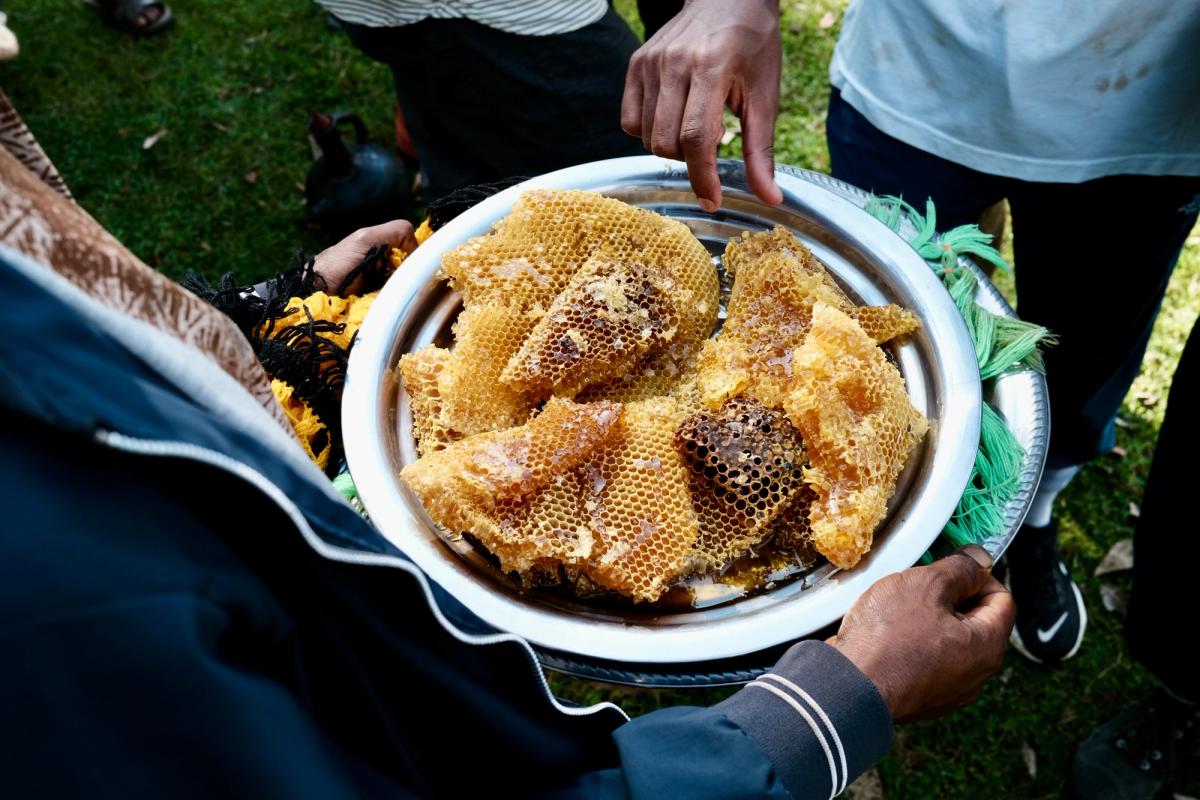
"The decision to deepen our partnership with the Addis Exporter team simply reflects our conviction that they are the right people to work with as we look to bring increased focus, intentionality, and transparency to the Agaro partnership in the years to come."
This context is shared to help clarify the recent evolution of the Agaro partnership: while Passenger plans to continue purchasing coffees grown by many of the same farming communities in the region, we will now be partnering with Addis Exporter rather than the Kata Muduga Union to produce and export these annual purchases. It is important to emphasize that this change does not reflect a lessening of our respect for the Kata Muduga Union, or a lack of appreciation for the support they have offered Passenger’s sourcing program over the years. Rather, the decision to deepen our partnership with the Addis Exporter team simply reflects our conviction that they are the right people to work with as we look to bring increased focus, intentionality, and transparency to the Agaro partnership in the years to come.
A family-owned enterprise with over 50 years of experience in the coffee industry, Addis Exporter is a self-described “OG” of the Ethiopian coffee trade. The company is led by Mike Mamo, a longtime friend of Passenger, who carries on the tradition of his father, the founder of Addis Exporter in 1972.
- article
- Supply Chain Conversations: Mike Mamo of Addis Exporter
- View article
In addition to offering coffee sourcing, quality control, dry milling, export, and logistics management services to its international clients from its offices in Addis Ababa, Addis Exporter owns and operates two washing stations, Telila and Atoma, in southwestern Ethiopia. Last year, Passenger’s green buying team started testing the waters of a broader partnership with Addis Exporter by allocating about 50% of our 2022/23 purchasing to coffees produced at the Telila washing station. Following a very successful pilot season, the decision was made to work with Mike and the Addis Exporter team for 100% of the Agaro coffees that we are currently contracting from the 2023/24 Ethiopian harvest.
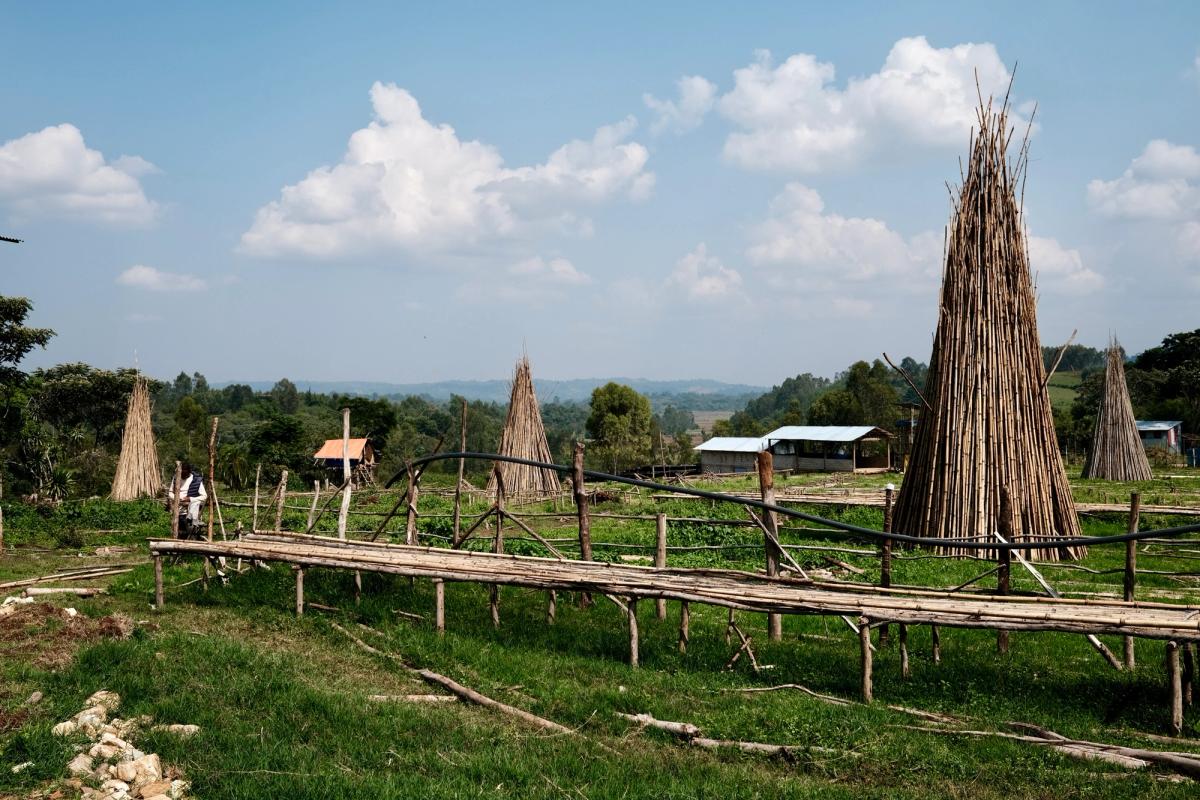
During a recent chat with Mike, I asked if he would be willing to share the meaning behind the names of the Telila and Atoma washing stations. His answer conveys the passion that informs his work and the deeply personal nature of his project:
Atoma and Telila are not just names to me. They are my identity, my legacy. Atoma, derived from “Ato Mamo” (or “Mr. Mamo”), honors the memory of my late father, the esteemed founder of Addis Exporter and one of the pioneers of the Ethiopian coffee industry. Telila, the name of my late grandfather, signifies purity and cleanliness in Oromia culture. Beyond their literal meanings, Atoma and Telila embody values of family, integrity, community, tradition, and love. They are etched deep in my heart, shaping my principles and guiding everything I stand for.
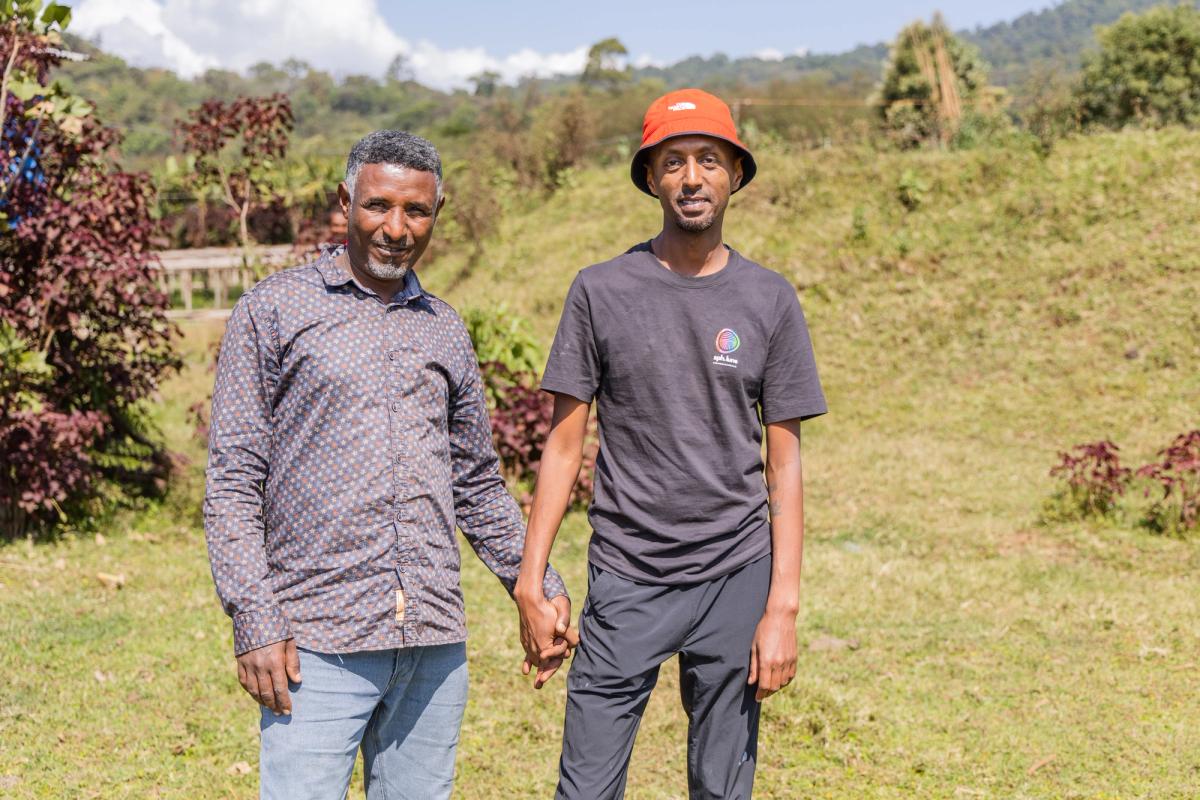 David Stallings - Osito
David Stallings - OsitoAs with each of the Foundational Partnerships, Passenger’s approach in the Agaro region is motivated by our goal of investing in the same farming communities year after year. By continuing to pursue this sourcing model, we hope to reduce risk and uncertainty for these growers as a reliable, engaged, and ongoing buyer of their coffees. Thanks to the recent evolution of our collaboration with Mike Mamo and the Addis Exporter team, new and exciting opportunities are coming into focus. While Ethiopia continues to be a challenging place to source specialty coffee, the people in the region that we are fortunate to count as partners inspire us to look to the future with optimism.
